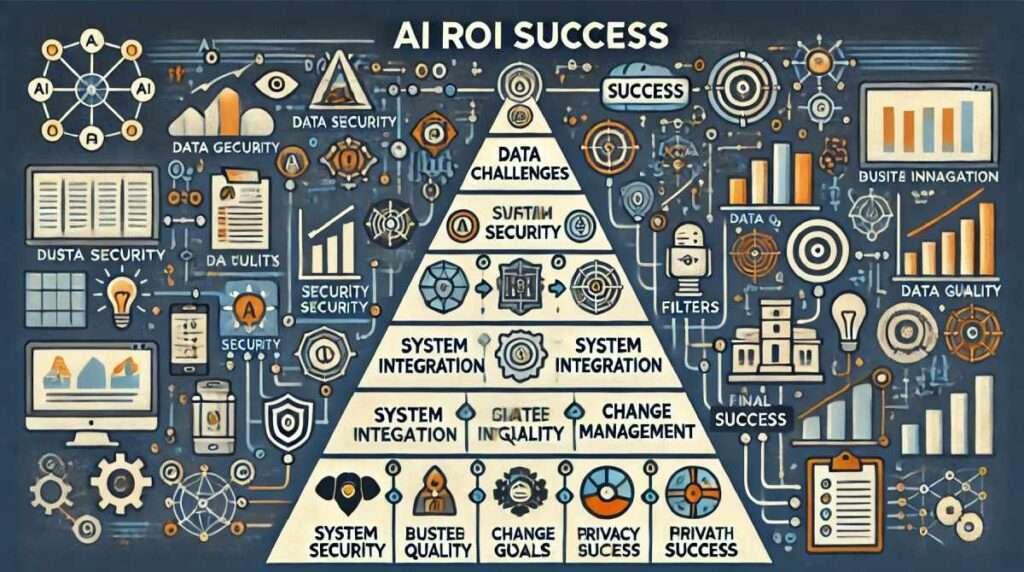How to Track AI-Driven ROI Metrics: A Comprehensive Guide
Artificial Intelligence (AI) is transforming industries by automating processes, enhancing customer experiences, and enabling smarter decision-making. As companies invest in AI initiatives, understanding how to track AI-driven ROI metrics becomes critical for justifying those investments and optimizing AI applications. In this comprehensive guide, we’ll dive into the key strategies to effectively measure and track ROI from AI-powered projects while offering practical tips, benefits, and real-world examples.
Why Tracking AI-Driven ROI Metrics Matters
AI initiatives often require significant upfront investment in technology, talent, and infrastructure. Just like any business project, measuring the return on investment (ROI) provides insights into profitability and impact. Tracking AI ROI helps businesses:
- Gauge effectiveness of AI tools and algorithms
- Identify cost reductions and revenue growth attributed to AI
- Align AI projects with business goals
- Make data-driven decisions for future AI investments
- Optimize resources and improve AI model performance
Core AI-Driven ROI Metrics to Track
Tracking AI ROI metrics is different from traditional metrics because AI projects often impact intangible factors like efficiency and innovation. Here are essential metrics you should monitor:
1. Cost Savings and Efficiency Gains
One of the easiest ways to measure AI ROI is to quantify cost reductions from automating tasks or processes. Consider:
- Reduced manual labor hours
- Faster processing times
- Lower error rates and rework costs
2. Revenue Impact
AI can directly or indirectly influence revenue streams. Metrics include:
- Increased sales conversions via AI-powered recommendations
- New revenue from AI-driven products or services
- Improved customer lifetime value using personalized AI engagement
3. Customer Experience Metrics
Enhancing customer satisfaction with AI tools helps build loyalty. Useful KPIs are:
- Net Promoter Score (NPS) improvements
- Reduced customer wait times through AI chatbots
- Higher retention rates
4. Model Accuracy and Performance
For AI models, performance heavily impacts business outcomes. Common AI model metrics include:
- Precision, recall, and F1-score
- Prediction accuracy improvements
- Time-to-insight or inference speeds
| Metric Category | Example Metrics | Business Impact |
|---|---|---|
| Cost Efficiency | Labor hours saved, error reduction | Lower operational expenses |
| Revenue Growth | Sales increase, new product revenue | Higher profits |
| Customer Experience | NPS, retention rate, wait time | Increased customer loyalty |
| AI Model Performance | Accuracy, precision, recall | Improved decision making |
Step-by-Step Guide: How to Track AI-Driven ROI Metrics
Follow these steps to create a structured approach to tracking your AI ROI metrics:
Step 1: Define Clear Goals & KPIs
Begin by identifying what success looks like for your AI initiative. Align AI objectives with company goals and select measurable KPIs related to efficiency, revenue, customer outcomes, or model accuracy.
Step 2: Establish Baseline Measurements
Measure current performance metrics before AI implementation to compare post-deployment results. This baseline is crucial for understanding true impact.
Step 3: Implement Tracking Tools and Analytics
Deploy analytics software or BI tools integrated with AI platforms for real-time metric tracking. Use dashboards that visualize KPIs clearly for stakeholders.
Step 4: Monitor and Analyze Data Continuously
Regularly review metrics to detect trends, anomalies, or performance bottlenecks. This iterative process allows quick adjustments to strategy or model tuning.
Step 5: Calculate ROI with Standard Formulas
Use the ROI formula customized for AI projects:
ROI (%) = (Net Benefits from AI - Cost of AI Initiatives) / Cost of AI Initiatives × 100
Step 6: Report Findings to Stakeholders
Summarize insights in data-driven reports showcasing the value generated by AI. Transparent ROI reporting strengthens buy-in for future AI investments.
Practical Tips for Effective AI ROI Tracking
- Start small: Pilot AI programs with measurable goals before scaling.
- Use qualitative feedback: Gather user feedback alongside quantitative metrics.
- Invest in data quality: Clean, accurate data leads to better ROI measurement.
- Segment ROI: Analyze ROI per department or project for granular insights.
- Balance short-term vs. long-term: Some AI benefits emerge only after months.
Benefits of Tracking AI-Driven ROI Metrics
Tracking AI ROI metrics consistently delivers several advantages:
- Increased transparency: Understanding AI’s impact fosters organizational trust.
- Better resource allocation: Direct funding towards high-ROI AI projects.
- Continuous improvement: Data-driven insights optimize AI models and processes.
- Competitive advantage: Leveraging AI effectively boosts market positioning.
Real-World Case Study: AI ROI Tracking in E-Commerce
An online retailer implemented an AI-driven recommendation engine to personalize shopping experiences. Here’s how they tracked ROI:
- Goal: Increase average order value (AOV) and conversion rates.
- KPIs: AOV, conversion rate, customer retention, and incremental revenue.
- Tracking: Analytics platform integrated with AI to compare user groups with and without recommendations.
- Results: AOV increased by 15%, conversion rate improved by 12%, and overall revenue grew by 8%. ROI was calculated at 220% within 6 months.
Conclusion
Tracking AI-driven ROI metrics is indispensable for maximizing the value of your AI investments. By carefully defining goals, choosing meaningful KPIs, and leveraging data analytics, businesses can reveal the tangible and intangible benefits AI delivers. Incorporate continuous monitoring, practical insights, and transparent reporting to ensure your AI initiatives align with business objectives and justify investment. With the right approach, tracking AI ROI not only demonstrates value but also drives smarter, more profitable AI strategies.











